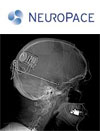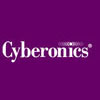AptarGroup today said it won FDA approval for its Unidose Liquid System that treats acute repetitive seizures in people who have epilepsy. The Unidose Liquid System is a device that delivers a nasal rescue treatment that is ready-to-use when and where a seizure cluster occurs. Get the full story on our sister site, Drug Delivery Business […]
Epilepsy
Treating epilepsy is harder than you think
One minute, I was walking across the cafeteria floor at a highway stop restaurant. Without warning, everything suddenly faded to black. The next thing I remember: Coming to face-up on the floor with an intense headache, a pool of blood forming around my head. My husband, a small crowd, and a concerned nurse traveling with […]
Cyberonics wins FDA nod for AspireSR
Cyberonics (NSDQ:CYBX) said it won FDA approval for its AspireSR generator designed for vagus nerve stimulation to treat drug-resistant epilepsy. VNS is approved by the FDA to treat epilepsy by delivering electrical signals to the vagus nerve, which project to areas of the brain associated with seizures. Studies have shown a majority of drug-resistent epileptic […]
IPOs: ReWalk and NeuroSigma prepare to hit the public market

Two medical device makers are preparing initial public offerings for the coming weeks, breaking up a spree of biotech IPOs that have dominated the market.
Function meets design in wearable epilepsy alert system | MassDevice.com On Call

MASSDEVICE ON CALL — Artefact’s Dialog medical sensor tracks hydration, temperature, pulse and other metrics with a single wearable sensor about the size of a quarter.
The technology helps epilepsy patients track incidents without relying on manual logs and also detects seizures and alerts family members. The Dialog device addresses important healthcare concerns for patients, but it also takes into account patients’ desire for devices that are as artful as they are functional.
FLASH: FDA approves NeuroPace’s anti-epilepsy implant

FDA regulators today announced that they granted premarket approval for NeuroPace for its anti-epilepsy device, an implantable neurostimulator that helps prevent seizures.
NeuroSigma wins an FDA green light for Phase III clinical trials

NeuroSigma is one step closer to bringing its epilepsy treatment to U.S. markets with FDA approval to begin its Phase III clinical studies.
Currently only available for investigational use in the U.S., NeuroSigma’s Monarch eTNS system is already on the shelves in Europe and Canada. Earlier studies have shown a 50% reduction in seizures for 2/5 of epilepsy patients treated, NeuroSigma said.
Ad-Tech brain implant recall gets FDA’s highest-risk status | MassDevice.com On Call

MASSDEVICE ON CALL — Federal healthcare regulators gave Ad-Tech Medical Instrument Corp.’s wide-reaching brain implant recall Class I status, the highest-risk category for medical device recalls.
Late last year the Wisconsin-based medical device maker recalled its Macro Micro Subdural Electrodes over concerns that the implanted devices could cause damage to the brain.
Cyberonics gains on lawsuit dismissal

Shares of Cyberonics (NSDQ:CYBX) are up some 6% today after the medical device company said an ex-sales rep voluntarily dismissed a wrongful termination lawsuit.
Andrew Hagerty sued the Houston, Texas-based company last August, alleging that Cyberonics canned him after he refused to sell unneeded replacement batteries for implanted pulse generators designed to treat epilepsy.
Medtronic enrolls 1st patient in epileptic brain-stim registry | MassDevice.com On Call

MASSDEVICE ON CALL — As neuromodulation therapy celebrates its 25th year, Medtronic (NYSE:MDT) enrolled the 1st patient into its Medtronic Registry for Epilepsy, a database tracking the safety, efficacy and quality of life of patients receiving deep-brain stimulation for treatment of drug-resistant epilepsy.
Magnetic brain stimulation advances to clinical trial for epilepsy
Patients with severe epilepsy can have seizures every day – sometimes waking up on the floor, not knowing what happened. For about 1 in 3 epilepsy patients, drugs are of no help. An implanted vagus nerve stimulator can sometimes control seizures, but often not. Surgically removing the excitable brain tissue can be curative, but often, too many areas of the brain are involved to effectively remove the entire seizure focus. Or the area causing the seizures is too close to a vital brain area – say, a memory or motor area – making surgery too risky.

